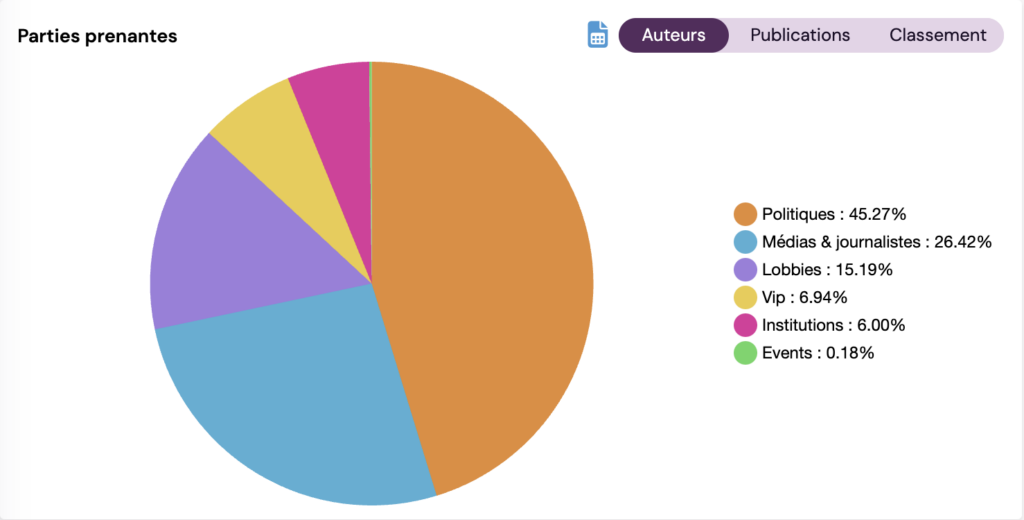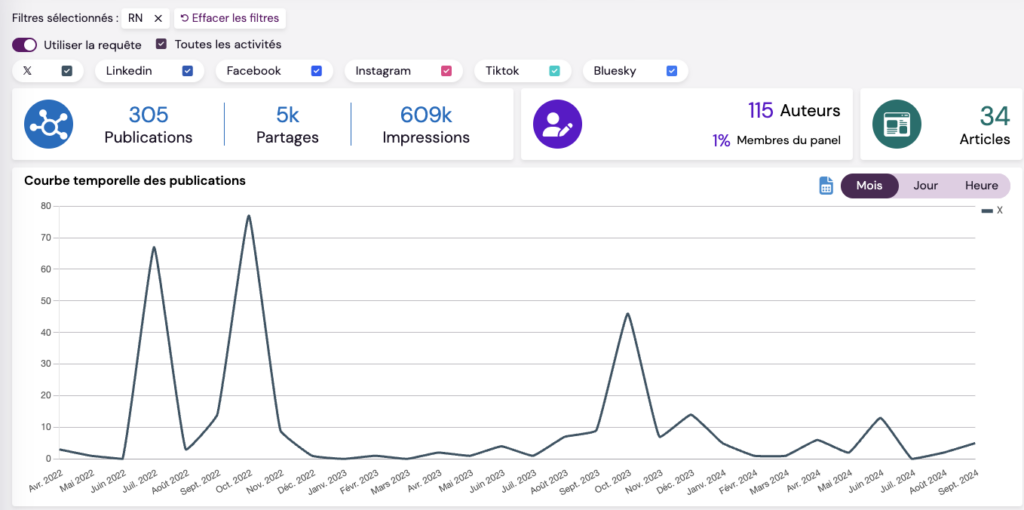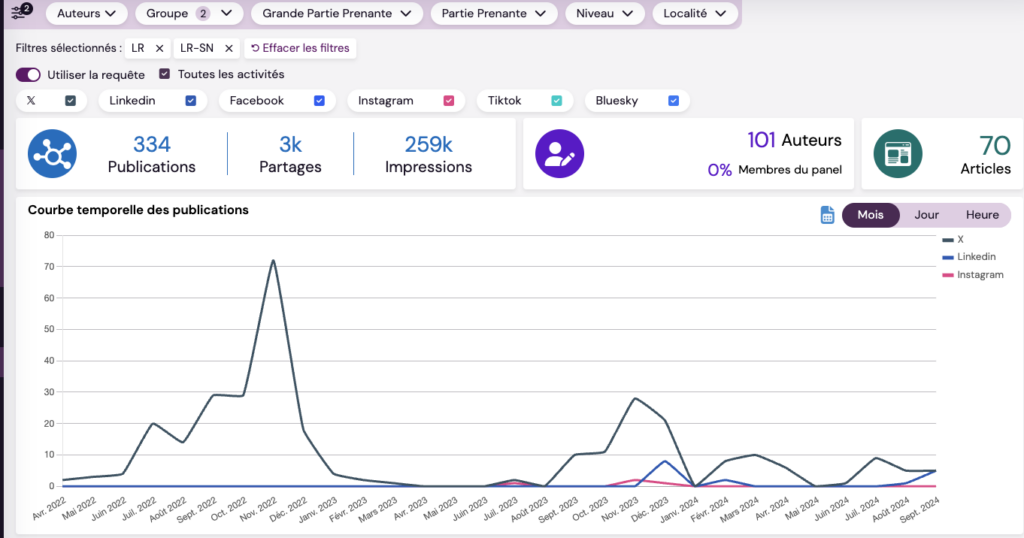Sommaire
Finance Bill 2025: communication delayed just as much as the text
Every year, the Finance Act plays a decisive role in France's budgetary and fiscal policy. For 2025, it is of particular importance, as it will have an impact on the life of the Barnier government.

And it is accompanied by a pessimistic climate, with so much bad news being prefaced by debt figures, Michel Barnier's announcements and a few media debates. What are the lessons to be learned from this rather special year?
The summary
On communication elements :
- While we might have expected a strong mobilisation on the PLF given the political context at the time, there has been absolutely nothing of the sort so far, apart from a huge media focus on the fact that the accounts situation was complicated.
- Eric Coquerel and Charles de Courson attempted to stage a happening that was picked up by the 24-hour news media, but with only a few briefs or short sequences in the more traditional media. It did, however, provide an opportunity to see Eric Coquerel simulate asking his secretary on camera whether she had received the elements of the government. LFI have been known to be more critical of the media, and this underlines their extreme need to regain control of the media after having relinquished the keys to power. Indeed, to develop a narrative of increasing the minimum wage and the Popular Front programme, given the assumption developed by the media and Michel Barnier of a serious situation from a budgetary point of view objectified by figures, seems completely out of step with reality.
- This did not really raise the profile of the issue, nor did it create a media sequence or a revival in civil society. The concept of ceiling letters is generally obscure to the general public, who can understand that a government that has only just been appointed needs time to work on the budget, especially as there is a heavy media climate.
- On social networks, almost no politicians (apart from extreme ones) are speaking out, and neither are the lobbies, although the media are very present. For example, the Frexit currents are pointing to the fact that budgets for Europe are increasing, unlike the rest. The silence is unusual for LR and RN compared with previous years.
To sum up the political elements:
- The popular front had a hard time existing in the sequence. Lucie Castets had a hard time staying in print and made an appearance that was strongly criticised, even by her usual enemies. (A bad sequence on immigration in a context with the "Philippine murder and rape case") Their axis of attack on the Barnier government is for the moment anchored on minorities or the middle class. But for the moment, the front has not reacted head-on to the budget lines developed in figures and to the current context. Overall, they are in a strategic retreat to define the action plan. Given the elements coming out of the lobbies and civil society, we can bet on a strategy focused on the ecological transition.
- The RN is silent in all languages. It will only be able to pre-empt certain subjects.
General issues :
- From a lobbying point of view, the papers focus mainly on the collapse of the ecological transition in the budget. There is also the issue of funding for territories. These will be the two issues of the moment from a lobbying and political point of view. A weak signal is the fear of a drop in the development budget, but without any real impact.
- From a media perspective, security, immigration and purchasing power seem to be the key issues.
Analysis
Today, the elements are essentially media and journalistic, with very little participation from lobbies and politicians, and even less from the media. In our panel, in September there were only 710 tweets with the items budget 2025, PLF, ceiling letters or budget in various forms. In fact, there was an increase over September! (+200 publications) It's the lobbies that are lost in the institutional meanderings of the appointment of the government, with fewer declarations than usual.


The fact is that the budget law is very important for federations, NGOs and lobbies, but the general public has little interest in it and does not understand its importance, which explains why it is so difficult for them to mobilise support.

And from a media point of view, we remain in the continuous or specialised news niche.
From a political point of view

The oppositions are mainly active, but very few players from each party are mobilising. There is a real sense that they are waiting for things to get off the ground, particularly in terms of their expectations of Michel Barnier's position.

The RN's silence is quite blatant. This is evidenced by its activity curve on the budget, which is usually at its lowest this year:

In other words, they are very little active on the networks in general. (Note that X is really their only active medium).
The same silence from LR, which is now part of the government:

The lobbies
Based on recent statements on social networks and in our database, lobbies are not very active in developing these areas. However, at a time when all the firms are drafting memos, it is key to make one's "position" available in a simple way. The government's support for the ecological transition is a very important area.
In housing / building :
- Fédération française des Bâtiments calls for housing plan measures
- The OPH federation wants to abolish the RLS, reverse the freeze on funding for energy renovation, and create a renovation bonus for low-cost housing.
- Effy deplores a €1.7 billion cut in the MaPrimeRénov' budget and calls for an emergency meeting
Ecology
- "Notre Affaire" aims to track green funds earmarked for the environment.
- The Climate Action Network wants to strengthen local climate investment and achieve our low-carbon objectives
- Agir pour le Climat on Linkedin denounces: 1 billion on Ma Prime Rénov, 1 billion on the Green Fund dedicated to local authorities, 500 million on the ADEME budget (Fonds Chaleur and Fonds Déchets) and 500 million on the electrification of vehicles.
- Cler is in favour of a fair and ambitious energy transition, driven by local and regional authorities and synonymous with democratic renewal.
- The Amorce association says that the Government must not give up on its ambitions for the ecological transition of the territories!
Economy
- U2P wants clarity via the Finance Plan.
Social
- One in France wants us to keep budgets for development
- Unapei deplores the lack of a minister for disability and calls for quality support solutions in sufficient quantity, access to rights and the attractiveness of care professions.
Transport
- Union TLF is calling for lower taxes for transport companies, the abolition of the unemployment insurance bonus-malus, and continued support for the greening of lorry fleets.
- GART advocates the creation of a new revenue stream.
Teaching
- Fage demands that we fund the university in line with its needs



